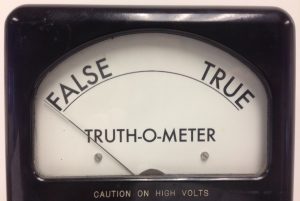In today’s world, it is a challenge to see clearly and judge between good and evil or the true from the false, while remaining hopeful and optimistic. It is easy to become cynical, discouraged, and feel hopeless.
Cynicism
The term cynic originated with an ancient Greek philosopher named Cynic who held virtue to be good. He became cynical of the rest of society and the material interests he saw. “Cynical” by definition implies a belief that people are motivated only by selfishness. It causes one to question the sincerity of people’s motives or actions. It implies disbelief in human goodness.
There is evil in our world – and people who have been corrupted by it. So many lies being spread that it is hard to know what is true. There are some who are simply misled, and may or may not be forceful in promoting falsehoods. Others have in effect “sold their souls” and embraced lies and evil. They manipulate and use others for their selfish purposes. We do need to be able to recognize such people and see them for what they are- not simply to condemn them, but to prevent them from gaining power that could cause harm to others and to our common freedoms. Too many people are easily deceived and mislead by such people, largely because they are able to present an acceptable face to the world, and often are very convincing.






